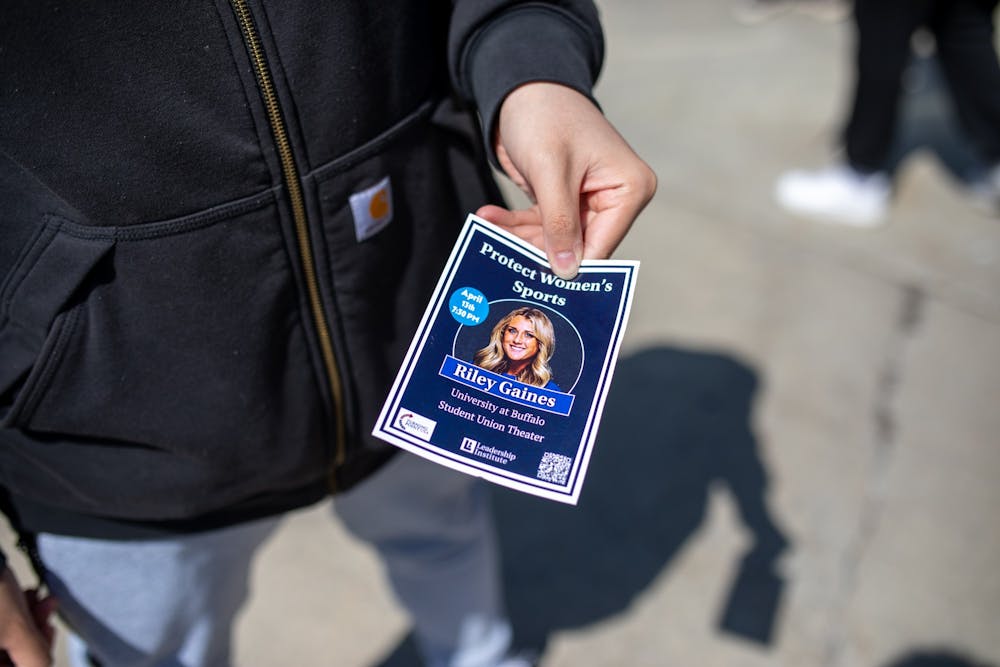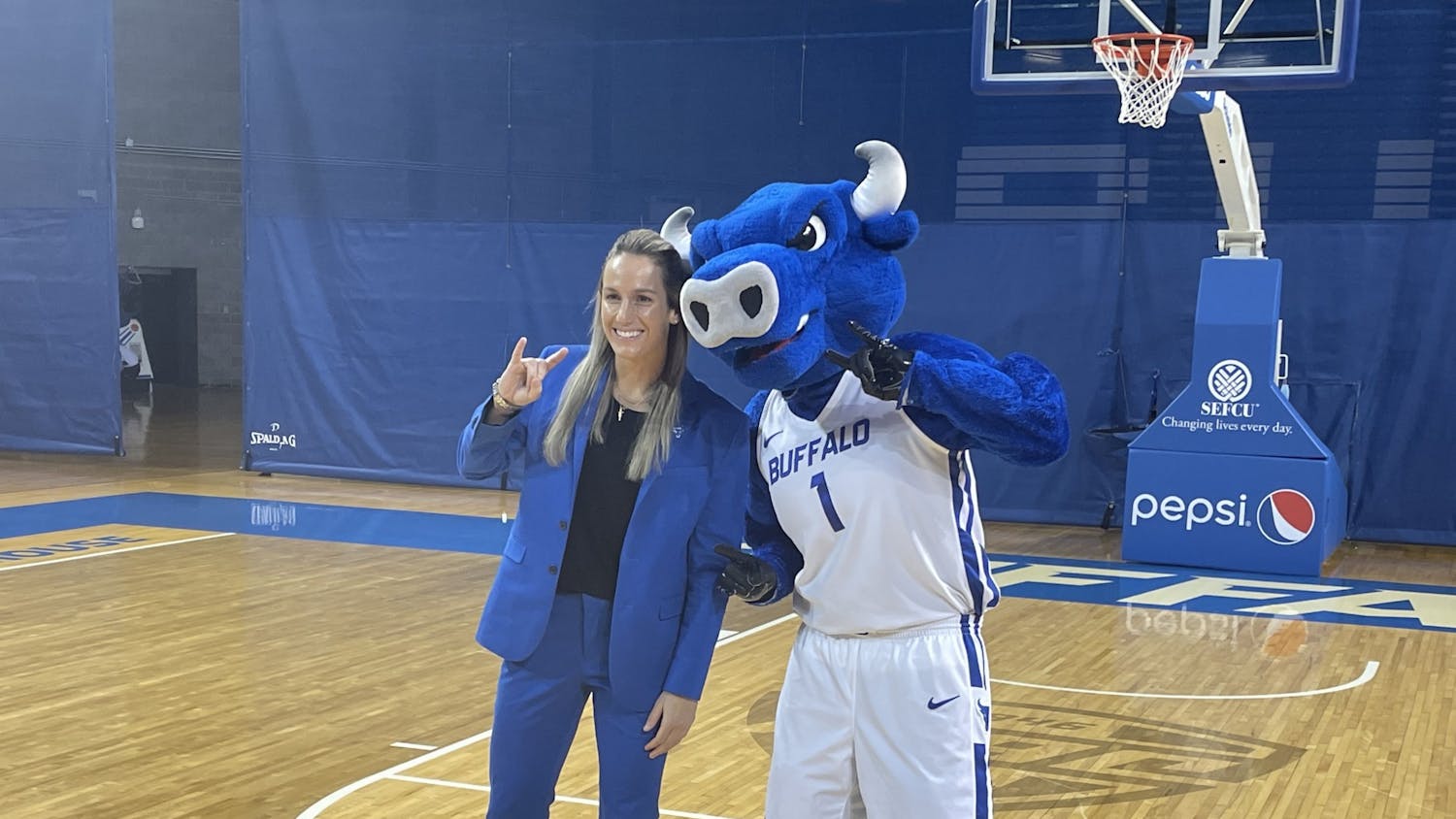Riley Gaines, a former NCAA swimmer who has advocated against the inclusion of trans women in women’s sports, delivered an on-campus speech titled “Protecting Women’s Sports” and answered audience questions Thursday night.
Gaines was invited to campus by Turning Point USA Buffalo (TPUSA), and made her appearance to UB just over a month after conservative pundit Michael Knowles spoke on campus with the invitation of the UB chapter of Young Americans for Freedom (YAF). The speech drew protests in the parking lot outside the building.
After an introduction by U.S. Rep. Claudia Tenney, Gaines was greeted with a standing ovation by the more than 100 people who attended the event.
Gaines discussed her races against swimmer Lia Thomas, a transgender woman from UPenn, and argued that transgender athletes should participate in a “third category” and use separate locker rooms, among other views.
“I by no means think anyone, regardless of gender identity, race, sex or anything should be banned from playing sports,” Gaines said. “It’s a common misconception that people think they’re banning trans athletes. I don't want anyone to be banned from sports because I truly believe sports are foundational.”
Gaines kicked off her speech by recounting her emotional connection to swimming, which started at 4 years old. By her junior year in college, Gaines was consistently reaching new personal records and says she jumped from seventh to third-ranked in the country.
After she learned she would be racing against Thomas, who had raced for UPenn’s men’s team from 2017-20, Gaines researched Thomas’ times and determined that she was a “mediocre male swimmer.”
Thomas was ranked 554th in the 200 freestyle, 65th in the 500 freestyle and 32nd in the 1650 freestyle during the 2018-19 while competing on the men’s team as a sophomore, according to Essentially Sports.
“I thought the NCAA would see this exactly how I saw it,” Gaines said. “Nothing is opinionated about it. Nothing is hateful about it. What’s on paper right in front of us is statistics, but that’s not how the NCAA saw it. They saw absolutely nothing wrong with allowing Lia Thomas to swim with women.”
Gaines expressed discomfort with Thomas being allowed in the women’s locker room, adding that the room went “quiet” as Thomas entered.
“It was embarrassing, awkward and belittling,” Gaines said. “It felt like betrayal.”
Gaines accused the NCAA of “catering toward” Thomas. After she and Thomas tied for fifth place in the 200-meter freestyle final at the 2022 NCAA Women’s Championships, Gaines said Thomas was given a trophy for “photo purposes” while she left the tournament empty-handed.
“When this official reduced everything that I worked my entire life for down to a photo op to validate the feelings of a male” — in reference to Thomas — “that’s when I had enough,” Gaines said.
In a separate race, the 500-yard freestyle, Thomas became the first transgender athlete to win a national NCAA Division-I title in any sport.
Gaines and Thomas were both nominated for SEC Scholar-Athlete of the Year that season. Gaines said the award became “meaningless” to her after she learned Thomas was a nominee.
Gaines also criticized the Biden administration’s plans to amend Title IX. If enacted, those amendments would include protections against discrimination based on sexual orientation and gender identity for the first time and expand the definition of sexual harassment, among other provisions, according to NPR. The Biden administration announced earlier this month that those changes would allow schools and colleges to impose some restrictions on transgender athletes’ participation in sports but not to “categorically” ban them, according to CNN.
For her part, Gaines said she believes that transgender athletes should compete in a “third category.”
“In an ideal world, I think a third category is a way to ensure everyone an athletic opportunity, everyone chances for success and everyone safety or privacy in their locker rooms,” she said.
Gaines ended the speech by saying she has felt like a “lone voice” in the past year.”
“We’re denying objective truth when we deny what a woman is,” Gaines said. “This is spiritual warfare. The whole movement is moral versus evil, light versus dark.”
Victoria Hill is the senior news editor and can be reached at victoria.hill@ubspectrum.com
Kiana Hodge is a news editor and can be reached at kiana.hodge@ubspectrum.com





